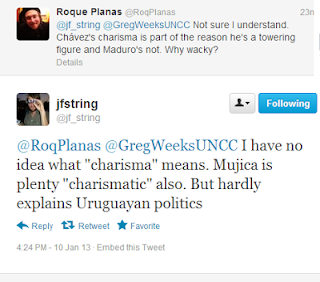Very interesting working paper (there is a link to the PDF there):
Walt, Stephen, and John J. Mearsheimer. "Leaving Theory Behind: Why Hypothesis Testing Has Become Bad for IR." HKS Faculty Research Working Paper Series RWP13-001, January 2013.
Abstract
Theory creating and hypothesis testing are both important elements of social science. Unfortunately, in recent years the balance between theory creation/refinement and the testing of empirical hypotheses has shifted sharply toward the latter. This trend is unfortunate, because insufficient attention to theory can lead to misspecified models and overreliance on misleading measures of key concepts. In addition, the poor quality of much of the data in IR makes it less likely that these efforts will produce useful cumulative knowledge. The shift away from theory and towards hypothesis testing is due mostly to the professionalization of academia, and this trend is likely to continue unless there is a collective decision to alter prevailing academic incentives.
The argument is that the subdiscipline of IR has been moving in a direction where the way to get a job and get tenure is to crank out articles with highly specific hypothesis testing that does not advance theoretical development. The classics of the field are more theoretical, but they argue that theorizing is being derided.
My stance tends to be that aiming for middle-range theory is a good strategy. Walt and Mearsheimer basically agree, but say that hypothesis testing doesn't even do that, and I disagree. To be fair, I am a comparativist so read less IR literature. But take the democratic peace literature, which involves both theory and hypothesis testing. Sure, there may be a ton of articles simply tweaking data in a way that doesn't really advance the debate, or case study analyses that don't offer generalizable conclusions. But I would say the debate as a whole has been both intellectually stimulating and useful to policy makers to boot.
In comparative politics, the same could be for the study of democratization. There is no overarching theory, but there is a lot of middle range theorizing. This has included a lot of hypothesis-testing and case studies that were very narrow--I often study the Chilean case, so could possibly be accused of that, in fact. But when the Arab Spring started, where did people--including policy makers and the media--start looking for clues? The experience of Latin America, which had yielded a lot of interesting insights.
My takeaway is that as scholars we need to explain why our particular study is useful in some broader context. That need not be grand theory, but if a subject is narrow, then you should make an effort to explain why it's useful to be studied in the first place.
It is true that pumping out articles is what assistant professors are taught to do. Hit a decent journal and the substance of your article may not even matter so much. So I would see this as a call also to journal editors and reviewers. Beyond the methodological sophistication or the incredible details of the case study, does the argument matter in a broader sense to middle range theory?
Read more...

